Who won and who lost the '12-day war' between Israel and Iran, and what changes are coming in the Middle East?

Twelve days of war, at least 610 dead in Iran, 28 dead in Israel, and a surprising outcome when, on Monday afternoon, US President Donald Trump announced to the world that a complete ceasefire had been agreed upon in a conflict that threatened to spread throughout the Middle East. Who won the war? What will happen in the region? What will be the fate of Iran's nuclear program? What future does the ayatollah regime have in the Islamic Republic?
When the war began on Friday, June 13, with a massive bombardment using 200 warplanes, Israel claimed its goal was to destroy Iran's nuclear program and neutralize the threat posed to the country by Tehran's development of increasingly advanced ballistic missiles.
Furthermore, key Israeli leaders, such as Defense Minister Israel Katz, asserted that Iran's Supreme Leader, Ayatollah Ali Khamenei, "cannot continue to exist" if the strategic objectives of the war were to be achieved, implying that his fall would pave the way for an eventual regime change promoted from within.
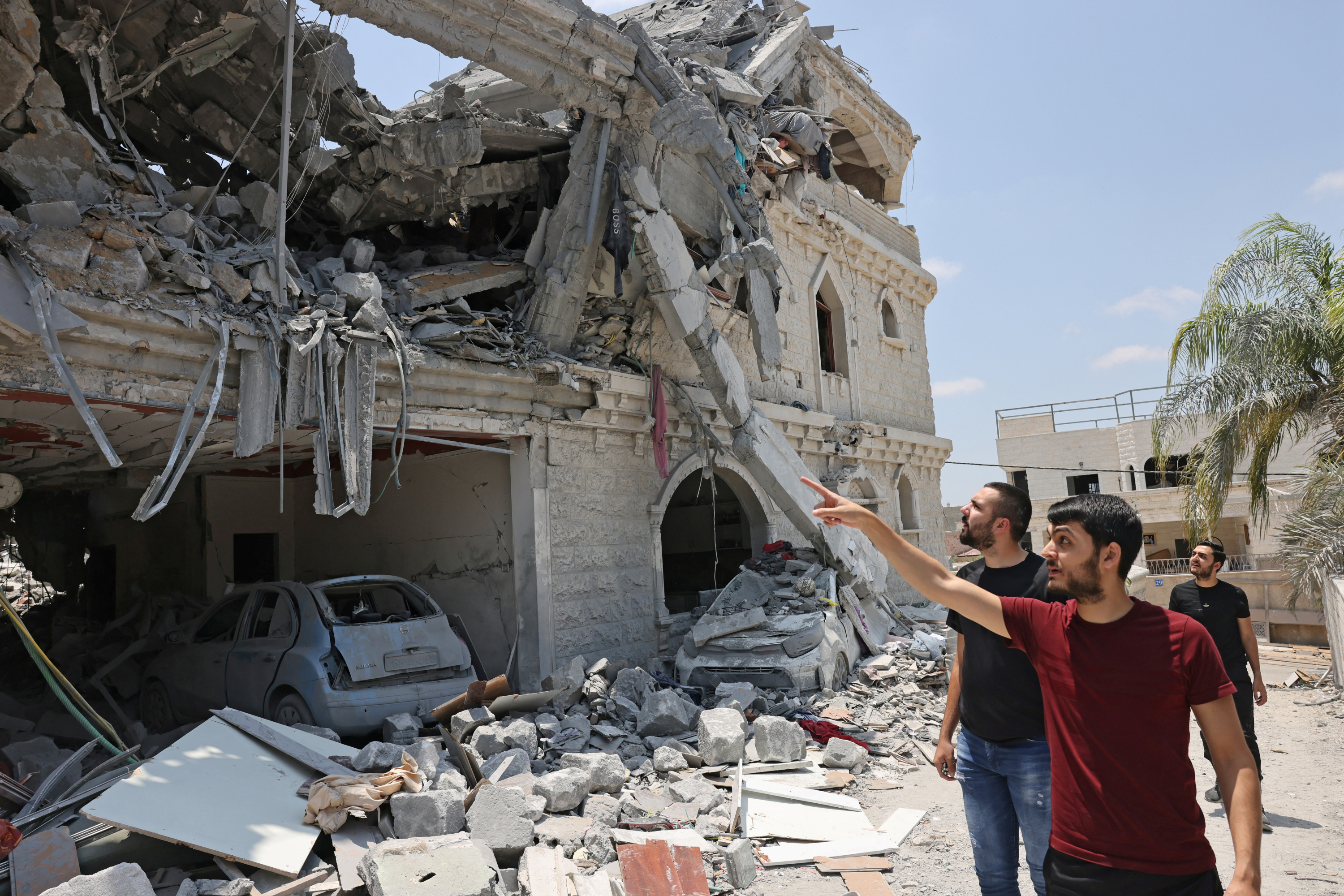
Several men inspect the destruction of a home in the Israeli-Arab town of Tamra. Photo: AFP
For years, Iran has denied the existence of the State of Israel and has repeatedly threatened to destroy it.
To end Iran's nuclear program, a country that has enriched uranium to 60% (90% is the threshold for creating an atomic bomb), Israel needed to successfully attack two key facilities: Natanz and Fordow, both located at approximately 12 meters and 80 meters deep, respectively.
Israel didn't have the bombs to do it, but the United States did. On Saturday, Donald Trump ordered an attack on Iran's nuclear facilities, and his B-2 strategic bombers dropped a total of 14 bombs weighing more than 13 tons on Fordow and Natanz. In the absence of independent verification, both Israel and the United States have claimed that the attack destroyed Iran's nuclear program.
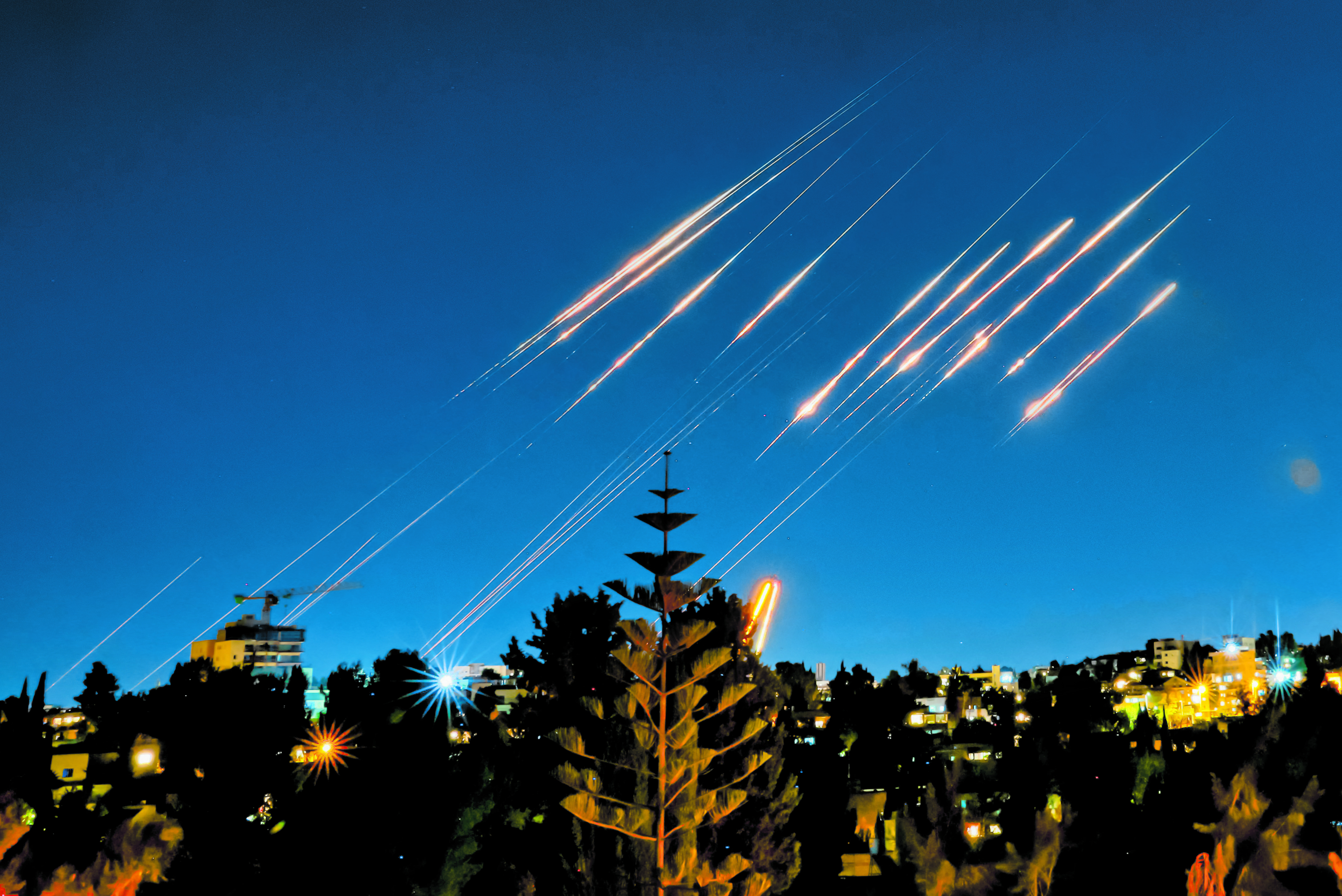
Iranian missiles seen from Jerusalem on June 14. Photo: Menahem Kahana. AFP.
On Monday, Iran's retaliation against the United States took place, and what was feared happened: an attack on US military bases in the Middle East, an action that threatened to escalate the war. Specifically, missiles were fired at Al Udid, located in Qatar, but they were easily intercepted. It was a contained attack; Trump himself even said that Iran had warned it would fire at that location, which is the largest US military base in the region. "El Comercio Newspaper. All rights reserved."
Then came the surprise announcement of the ceasefire.
As of Tuesday, the terms of the agreement were unknown. Only the message Trump posted on social media remains. It's unclear what Israel and Iran agreed to: Will there be negotiations? Will Iran now agree to end its nuclear program? Will Israel abandon its preemptive strikes against Iran and the assassination of Iranian nuclear scientists? Has the United States assured Israel that Iran will no longer be a threat? It's unknown.
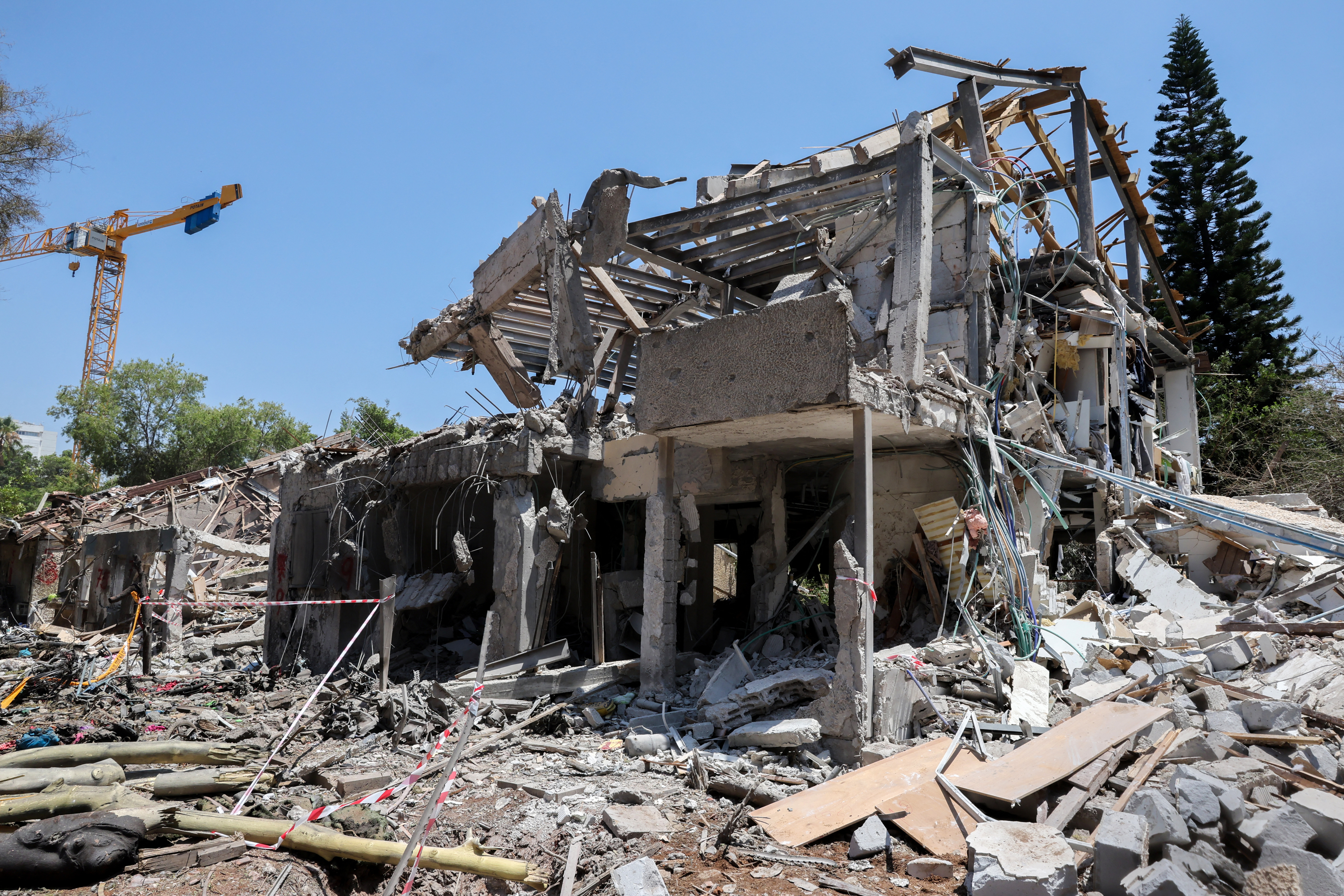
Israel Photo: AFP
El Comercio interviewed two analysts to draw initial conclusions from this 12-day war that captured global attention. "El Comercio Newspaper. All rights reserved."
Who won the war? A conflict hanging on a fragile truce. Journalist Carlos Novoa, who specializes in Middle Eastern issues, told this newspaper that there are no winners in this war, especially considering that the ceasefire is weak and that a spiral of violence could erupt at any moment.
"What we could say from a military, political, and symbolic perspective is that this war has exposed the weaknesses of each side. On the one hand, the ayatollahs' regime has been put in jeopardy in Iran, because if Israel's offensive continued, it could have fallen at any moment, which is why they accepted this cessation of hostilities," Novoa emphasized.
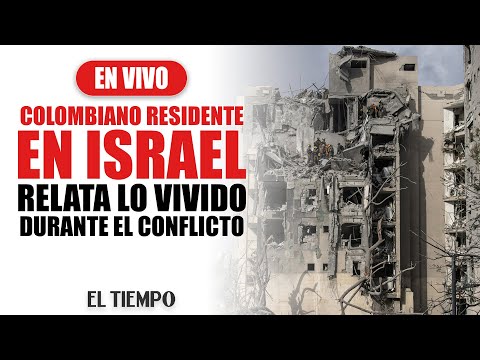
THE TIME Photo:
"On the Israeli side, while it is true that it attacked with force and damaged the military power in Iranian territory, its vulnerability has been demonstrated, because Iranian long-range missiles were able to penetrate its territory, causing damage and even deaths in emblematic cities such as Tel Aviv, Haifa, and Beersheva," Novoa emphasized.
Alonso Cárdenas, a political scientist at the Antonio Ruiz de Montoya University (UARM), told El Comercio that it is difficult to predict a victory in absolute terms.
"But we could talk about a political victory for the ayatollahs' regime because it remains in power. Let's remember that there was a time when Mr. Netanyahu and also Trump spoke about the possibility of regime change, but that would have literally opened the gates of hell. We can see the precedents in Iraq, Syria, Libya, and Afghanistan," he noted.
Cárdenas maintained that the one who truly bears the brunt is Netanyahu, who believes he needs a conflict to stay in power due to the national and international criticism he faces.
" Netanyahu is being investigated in Israel for corruption, he's being investigated for wanting to change the structure of the judiciary, he's being investigated for negligence that allowed the Hamas attacks of October 7, his parliamentary majority is increasingly weak, and even Israeli society is deeply dissatisfied with his actions because he failed to rescue the hostages," he stressed.
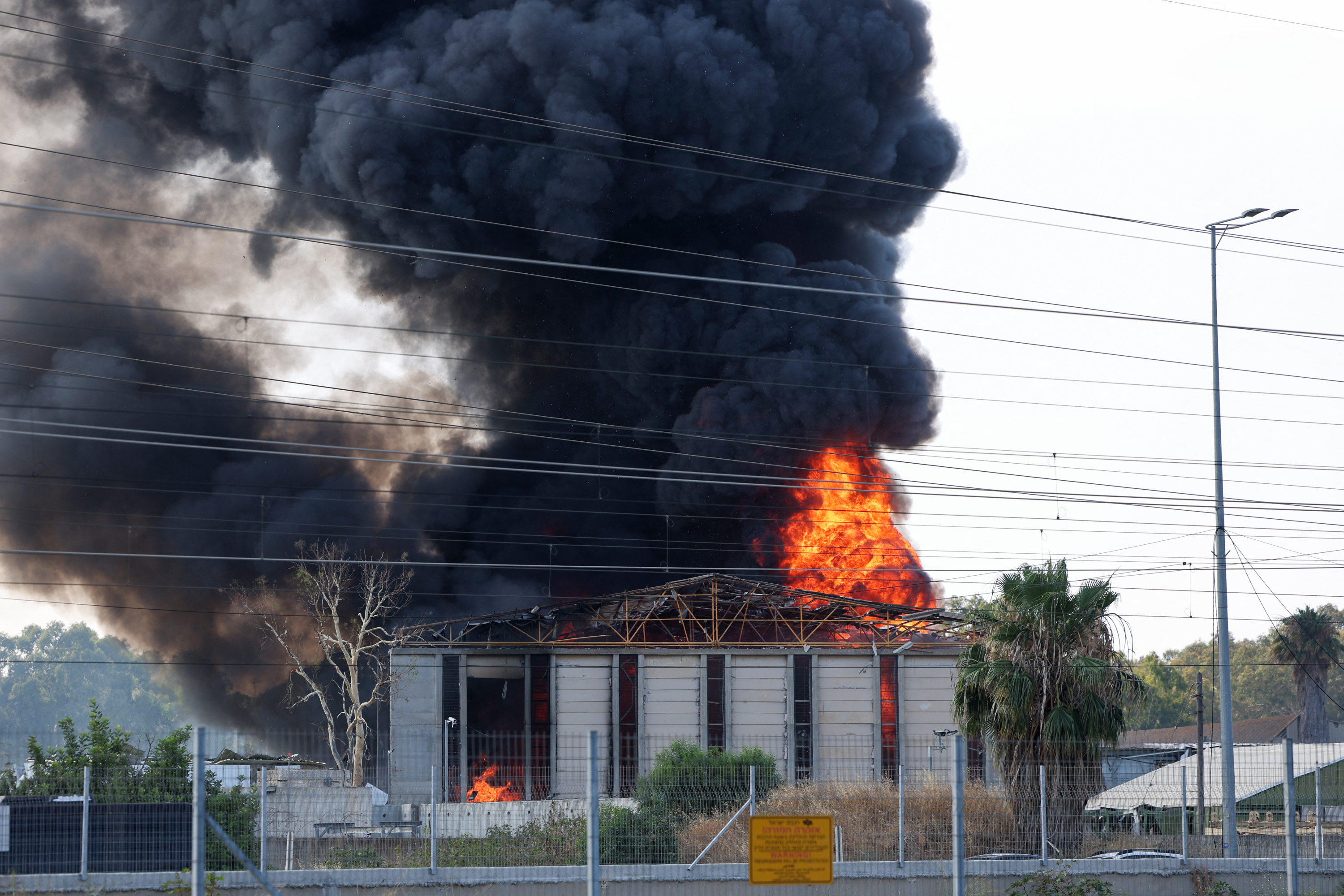
Tel Aviv after Iranian bombing. Photo: AFP
What will happen in the Middle East if one of the consequences of this war is the fall of the ayatollah regime in Iran?
Novoa said the problem in the Middle East is that when a regime falls, the next in line isn't to establish a Western-style democracy or improve the country's living conditions, but quite the opposite.
"Chaos is sown because it generates guerrilla warfare and power struggles between clans. We've seen this in Iraq, Syria, and Lebanon. If the ayatollahs of Iran leave, the United States and Israel will seek to install a government aligned with them, with the resulting opposition from Islamist groups that will fight them at all costs," he emphasized.
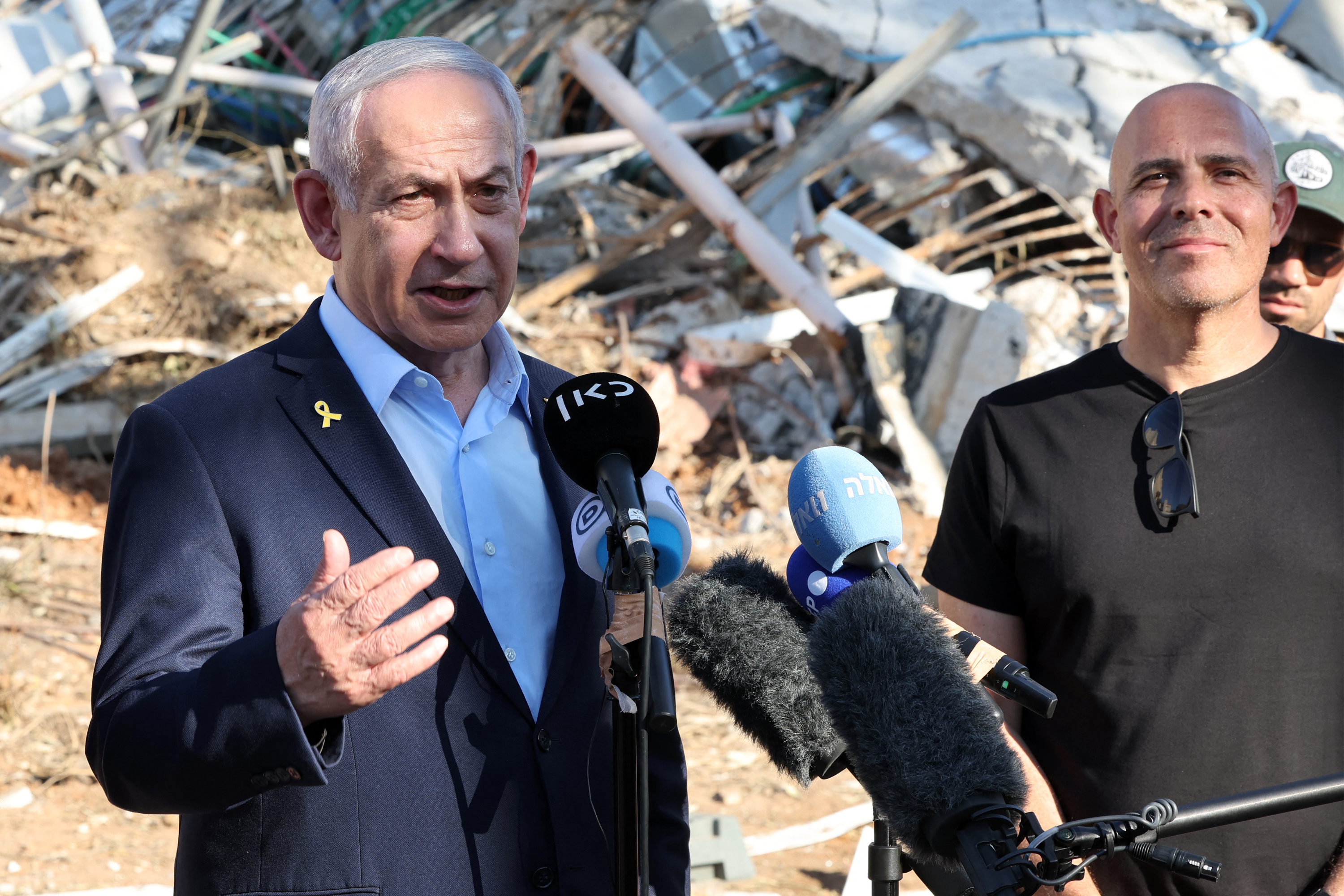
Israeli Prime Minister Benjamin Netanyahu in the central city of Rehovot. Photo: AFP
Cárdenas maintained that for now, the ayatollahs' regime will remain in power. He also explained that he will continue to support his proxies, who form the so-called Axis of Resistance, even though they have been severely hit by Israel.
“ Hamas is weakened but still exists. Hezbollah is weakened but still exists. The Houthis in Yemen continue to fire missiles at Israel. And now, for the first time since the 1973 Yom Kippur War, Israeli cities like Haifa, Tel Aviv, and Jerusalem have been attacked. It's proven that Iron Dome is not invulnerable. The Israeli population hasn't experienced attacks of this magnitude for decades,” Cárdenas said.
"There could be an implosion of the ayatollahs' regime; I don't rule that out. But Netanyahu could also fall due to his political and legal problems," Cárdenas said.
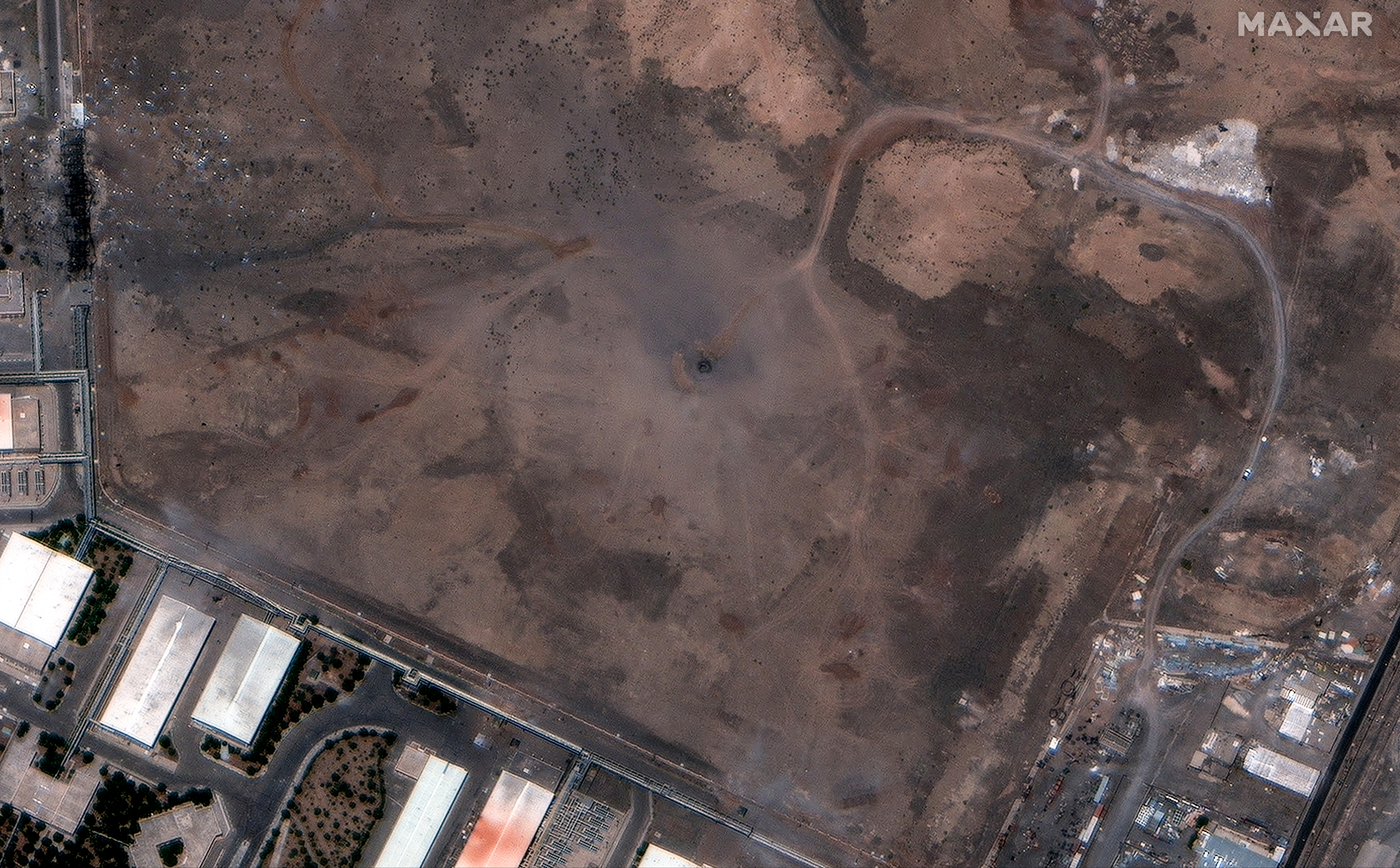
Crater after the US attacks on the Natanz nuclear enrichment plant. Photo: AFP
According to the most recent data from the International Atomic Energy Agency (IAEA), Iran had 408.6 kilograms of 60% enriched uranium as of May 17, 2025. Once the war is over, will it have to hand over this material and its centrifuges to the IAEA?
Following the US bombing of Iran's nuclear facilities, Trump has repeatedly stated that Iran will never have an atomic bomb. Israel maintains the same.
Novoa stated that the US president's assertions should be taken with a grain of salt.
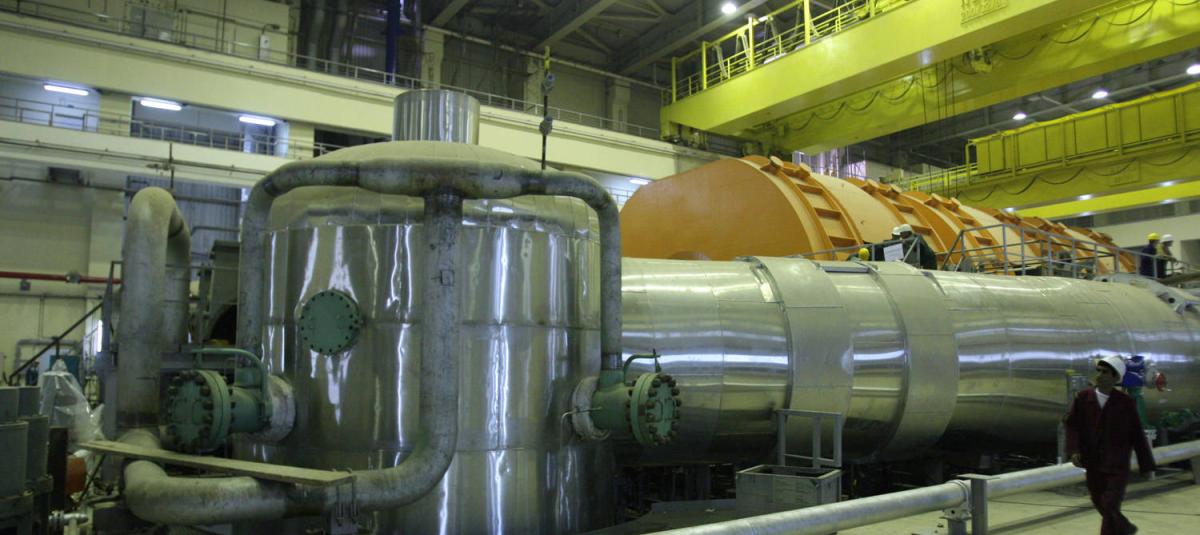
Uranium enrichment in Iran. Photo: Efe
" What Trump says always leaves us in a state of uncertainty and confusion. On Monday, he said the war would be over in a few hours, but that wasn't the case. He got so angry with Israel for continuing to attack, and he's had a relatively understanding speech toward Iran," she noted.
"Iran could take advantage of the ceasefire to buy time to finalize its idea of having a nuclear bomb. This is something that will be discussed within the public opinion of that country," Novoa said.
Cárdenas indicated that the underlying issue in this war is that Iran now has every incentive to develop a nuclear weapon, because it's practically the only guarantee against attack. "You have the example of Saddam Hussein in Iraq (who was overthrown), and you look at the case of North Korea, which has nuclear weapons and no one attacks it."
"But the red line remains, and Israel will not allow Iran to have a nuclear weapon," Cárdenas stressed.
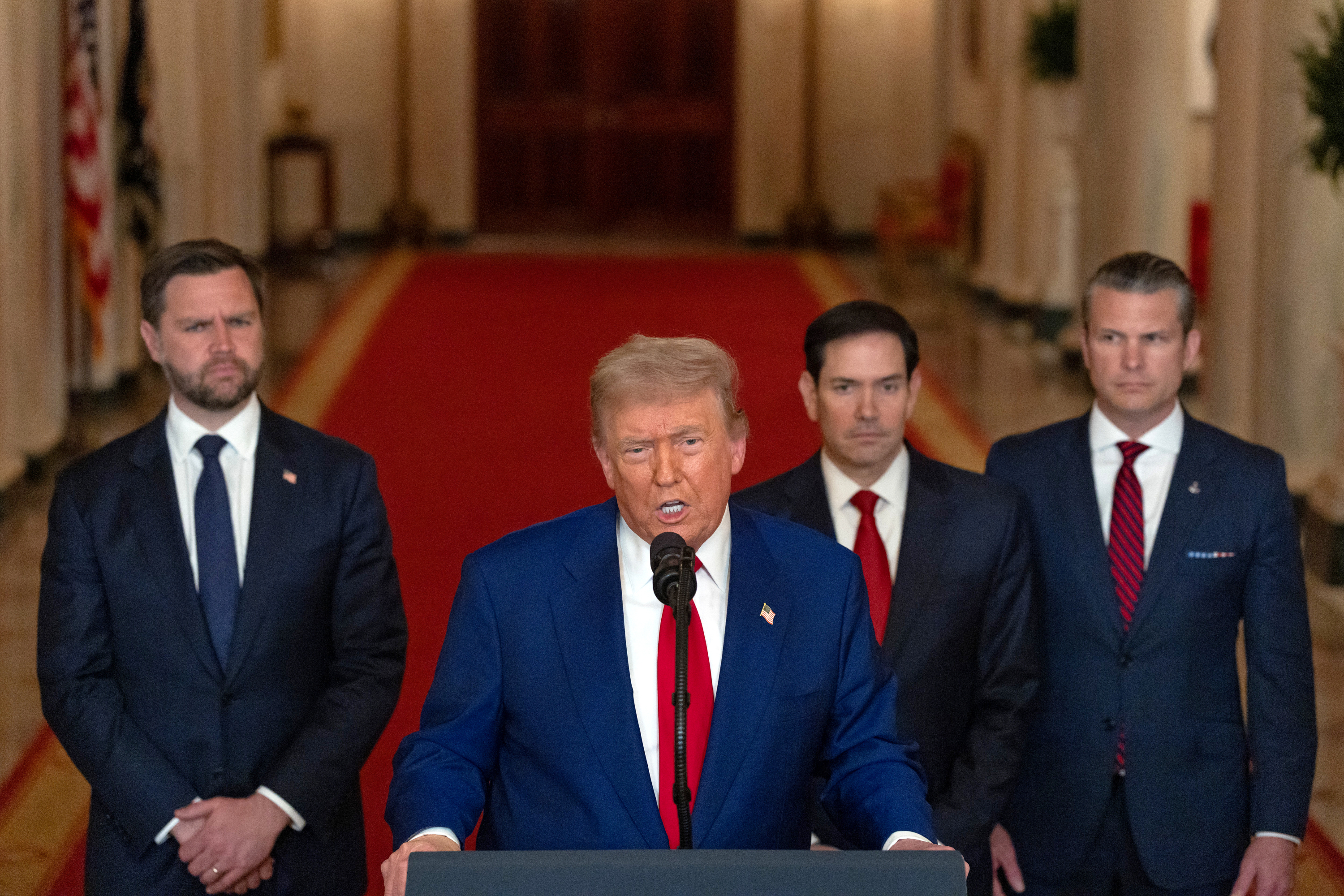
Donald Trump in his address to the nation on the attacks on Iran. Photo: AFP
Cárdenas recalled that during Barack Obama's administration (2009-2017), Iran agreed to limit its nuclear program in exchange for relief from international sanctions. But Trump later broke that agreement.
"That removed all incentives for Iran to comply with the agreement," Cárdenas said.
“Let's remember that Iran, unlike Israel, is a signatory to the nuclear non-proliferation agreement. That obligates it to have inspectors go and do their work. But in Israel's case, that's not the case. Israel hasn't signed that agreement. And it's important to remember that since 1981, the Security Council has asked it to be transparent about its nuclear program. But more than 40 years have passed, and it has repeatedly denounced it,” Cárdenas said.
He added that to return to the negotiation process, the agreement with Obama to lift sanctions on Iran in exchange for increased inspections would have to be resumed. "But since that agreement was broken by Trump, resuming it would be an admission that he was wrong, so it's very difficult for that to happen."
eltiempo





